Where Expertise Has A Name
When it comes to finding potentially life-changing answers for your patients, you deserve a lab partner with a name built on trust. With Ambry Genetics’ Classifi program, we’ve put a name to the layers of our expertise, process, and use of cutting-edge technology that have set us apart for over 25 years. Every test, every answer, is backed by our unshakable commitment to leaving no stone unturned for your patients.
What is Classifi?
The Ambry Classifi program is the way we operationalize our promise to provide the highest quality test results.
Embedded in our framework, Classifi includes our proprietary, knowledge-driven engine for gene classification, variant analysis & interpretation, and reporting, as well as our follow-up studies for resolving variants of unknown significance (VUS).
But we don’t stop there: Classifi also embodies the way we share data, lead with expertise, and collaborate for the benefit of all.
Setting the standard for the highest quality, clinically relevant answers
Genetic test results need to be accurate, consistent, and relevant to the clinical context. We’ve built teams, technology, and processes that ensure we’re applying rigor to our understanding of genes and variants so that you get results that maximize understanding and minimize uncertainty.
Systematic Assessment of Gene-Disease Associations
Understanding gene-disease validity is critical to ensuring the reliability of evidence-based reporting, designing products that minimize VUS, and stimulating advances in gene discovery to resolve previously unsolved cases.
We invest in a dedicated team of experts fully committed to researching new gene-disease associations, and we’ve developed the only clinical laboratory gene-disease validity assessment system published in the peer-reviewed medical literature.
Variant Evaluation by Our Clinical Experts
Our technology is powerful: we have proprietary in-house bioinformatics and reporting tools that integrate with our knowledge database and curated, up-to-date information from publications.
However, no technology can replace thoughtful, human analysis. Our interdisciplinary team of variant scientists has highly specialized expertise in nonsense mediated decay, protein modeling, RNA, and splicing. Our reporting team, made up of genetic counselors, ensures that we focus on clinically relevant, actionable findings with the information you need to take the next steps.
Using the Latest Tools to Resolve Unsolved and Uncertain Cases
Every attempt is made to get to a clear answer the first time, but sometimes additional effort is needed to accurately characterize gene-disease relationships or classify variants. We use advanced research tools and mine the latest publications to find evidence that can solve the hard cases.
RNA Functional Studies
Our translational genomics laboratory provides comprehensive RNA studies that employ cutting-edge techniques. These include targeted short and long-read RNA sequencing, allowing us to delve deep into the impact of patients' variants on various aspects such as gene expression, splicing, and disease risk
Experimental & Computational Biology
When needed, our team performs structural assessment and uses custom validated in-silico software to harness the power of artificial intelligence and machine learning techniques to extract meaningful insights and predictions from complex data.
Patient for Life
We know that there are an estimated 20,000 human genes, but the clinical impact is currently understood for only about a quarter of them. We commit resources to ongoing monitoring and characterization of new gene-disease relationships. When we find new answers, we proactively alert healthcare providers through our Patient for Life program.
Our Team

Strength in Diversity
Our powerhouse team includes laboratory directors, bioinformaticians, structural biologists, and our genomic sciences and curation program (GSCP) scientists with unparalleled specialized expertise.

GC-Forward Expertise
Our organization boasts a team of over 100 board-certified genetic counselors seamlessly integrated into every aspect of our operations, with diverse roles in accessioning, variant analysis, medical affairs, research, marketing, and product development.

Committed to Collaboration
We believe in the transformative potential of partnerships to advance genetic discoveries. Our extensive network of collaborators is a testament to our commitment to collaborative research and data sharing. See a full list of our collaborations here.
Sharing Information for the Benefit of All
ClinVar
We’ve believed in data-sharing from the start, and we’re proud to continue to be a leading contributor to ClinVar.
GenCC
We support this global effort to harmonize gene-level resources, and we’re the top contributor and part of the steering committee for GenCC.
Leadership
Our team members demonstrate leadership in the genetics community, with involvement in 100+ professional orgs, guideline committees, expert panels, and working groups.
Publications
We regularly publish our internal data and collaborate with others to share findings, with over 400 peer-reviewed publications and counting.
References
- Bean et al. Genet Med. 2020 Mar;22(3):453-461. doi: 10.1038/s41436-019-0666-z. Epub 2019 Nov 16.
- Farwell Hagman K et al. Genet Med. 2017 Feb;19(2):224-235. doi: 10.1038/gim.2016.95. Epub 2016 Aug 11.
- Smith ED et al. Hum Mutat. 2017 May;38(5):600-608. doi: 10.1002/humu.23183. Epub 2017 Feb 13.


